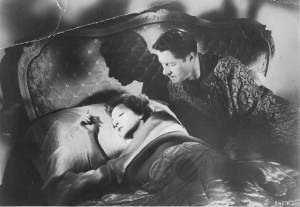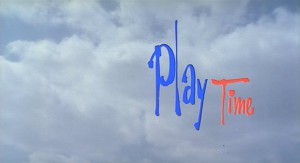From Cinemad No. 3 (2000). Much of this piece makes me blush, and other parts are clearly out of date, but I’m posting this basically “for the record”. -– J.R.
A conversation with film critic Jonathan Rosenbaum by Paolo Ziemba
This being the first article that I’ve written for Cinemad I thought it was more than appropriate to delve into a time where films changed my way of thinking of the world. Rosenbaum was key in this new beginning. Cinemad continues this process. While reading Rosenbaum’s books for research I experienced a sort of nostalgia for the days back when I was broadening my knowledge of cinema. Rosenbaum had opened many doors to a world of cinema that I had never experienced before. With this in mind I would like this article, at the least, to stir the readers to explore what Rosenbaum, and the world of cinema, is more than willing to offer.
Imagine a film critic who travels the world and experiences all cinema. Imagine a critic who is not only moved by cinema because of its beauty, but also because of its importance in the world. Imagine a critic who takes all of this in and then serves it to anyone willing to read. Read more
From Film Comment (July-August 1977). After I returned to the U.S. early that year after seven and a half years of living in Europe (Paris and London), my “Paris Journal” and “London Journal” column in Film Comment became “Moving,” a preoccupation that eventually yielded the title of my first book, Moving Places.
Note: the 35 mm screening of JEANNE DIELMAN alluded to here was set up by Manny Farber and Patricia Patterson on the University of California, San Diego campus while they were working on the last of their essays. -– J.R.

How to keep moving in the same way that this column must travel — from La Jolla, to Richard Corliss in Cannes, to Film Comment in New York, to wherever you happen to be reading it? Now that TV Guide generally has to take the place of Pariscope, [London’s] Time Out, the New York newspapers, shall I write about the breathneck beginning of Sirk’s SLEEP, MY LOVE, the parallels with Preminger’s WHIRLPOOL,a wonderful exchange between Don Ameche and Hazel Brooks (”Doesn’t sound like my girl…” “You have a lot of girls. This is one of them”), or scenes that unexpectedly and mysteriously take place in the rain? Read more
Written in 2013 for a 2019 Taschen publication. — J.R.
PlayTime

1. The Title
First of all, what is the title? Like most other critics, I’ve generally known and written it as Playtime, but the final draft of the screenplay in late 1964 called it only Film Tati No. 4. Other early and tentative titles included Récreation (Recess) and La grande ville (The Big City). In 1979, based on the credits sequence and ad logos, film academic Kristin Thompson wrote that the correct title was Play Time. But according to this volume’s editor, “Tati himself referred to it in correspondence always in capitals and always (at least from what I’ve seen) as one word,” i.e. as “PLAYTIME”. And “Macha Makeieff, as the rights holder to the Tati estate, took an official decision a few years back that the official spelling is now to be ‘PlayTime,’ i.e. in one word but with a capital ‘T’.”
Do such distinctions matter? I think they do. American historian Rick Perlstein has called “Play Time “a sentence, not a word, and a command,” adding that one can even “read it as two verbs, a double command.” But what arguably makes “PlayTime” better than either “Playtime” or “Play Time” is its emphasizing the fact that it isn’t either a French or an English title. Read more


